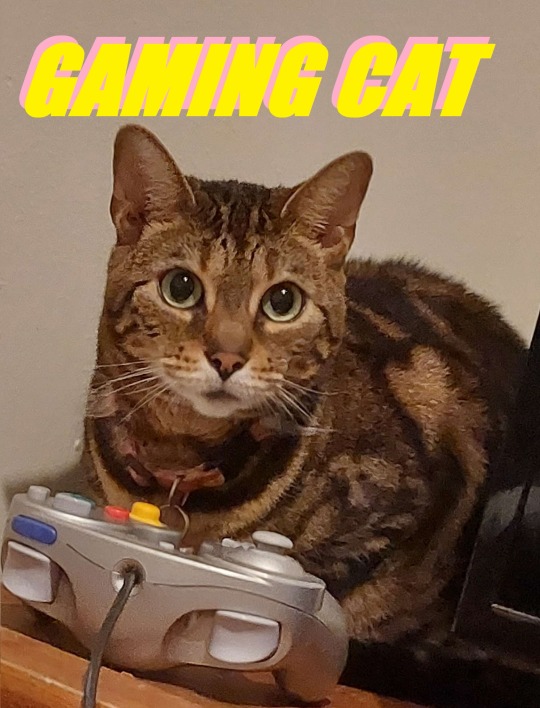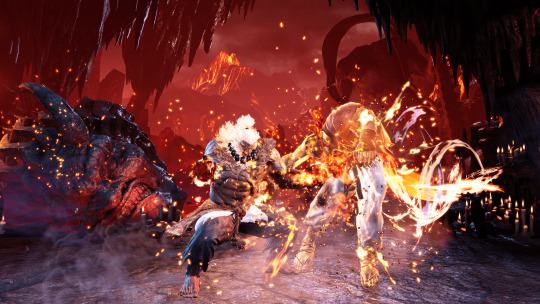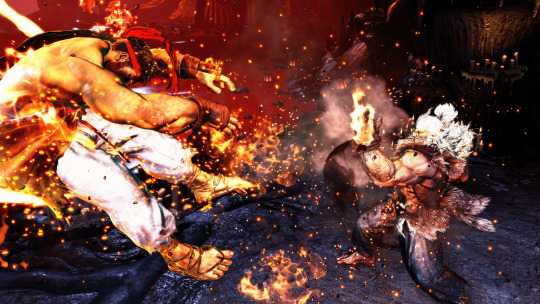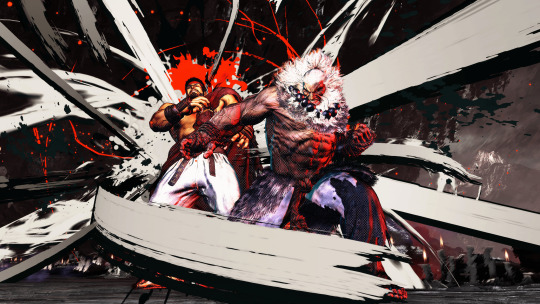#eSports community
Explore tagged Tumblr posts
Text
as a world-building main, watching you craft plot arcs without building out political systems is painful. if you need help constructing a kingdom hierarchy, hmu (i’m plat in lore, but I also do pacing coaching on the side).
#my niche is esports copypastas x writing#writing#writeblr#writers on tumblr#writers#writer#writing community#creative writing#writerblr#writer things#writers block#writers life#writers and poets#writerscommunity#ao3 writer#writer stuff#writing funny#on writing#write#writing meme#writing memes#writing struggles#writing problems#writing humor#writer problems#writing is hard#motivation#writing motivation#autumn#fall
30 notes
·
View notes
Text
𝑂𝑛𝑒 𝑜𝑓 𝑡ℎ𝑒 𝑚𝑜𝑠𝑡 𝑏𝑒𝑎𝑢𝑡𝑖𝑓𝑢𝑙 𝑎𝑛𝑑 𝑠𝑡𝑟𝑜𝑛𝑔 𝑝𝑒𝑜𝑝𝑙𝑒 𝑖𝑛 𝑡ℎ𝑖𝑠 𝑐𝑜𝑚𝑚𝑢𝑛𝑖𝑡𝑦💗

click the image for better quality <3
I'm so excited for "Training Season"!💃🏻
#just dance#just dance 2025 edition#just dance 2025#jd2025#jd2025e#games#just dance fandom#for you#spotify#for you page#fyp#just dance edit#edit#just dance time#just dance content creators#just dance community#TheFairyDina#dina just dance#the fairy dina#daily just dance#dua lipa#training season#britney spears#toxic#toxic remake#olympic esports series#Spotify
25 notes
·
View notes
Text
🎮 Attention, gamers! The next chapter in Call of Duty: Black Ops 6 unfolds on January 28 with Season 2! 🌟 Explore new maps, modes, and exciting weapons. Don't miss out! Read all about it in our blog!
#Call of Duty#Black Ops 6#COD Black Ops 6#Season 2#Gaming News#Multiplayer Maps#New Modes#Loadout Items#Zombies Map#Warzone Updates#Video Games#Game Launch#Gamer Community#Gaming Events#Battle Pass#Weapon Skins#First Person Shooter#Esports#Gamer Life#Game On#Multiplayer Gaming#Online Gaming#Video Game Updates#COD Warzone#Competitive Gaming#Gamer Gear#New Weapons#Gaming Experience#Action Games#PlayStation Gaming
5 notes
·
View notes
Text

My little brother made this with our cat haha
#cute#cats#cat memes#cat#shitpost#shit post#meme#memes#shitposting#gaming cat#gaming#gaming community#esports#gamecube
30 notes
·
View notes
Text
7 notes
·
View notes
Text
URGENT: Selling My Mobile Legends Account (2 Servers) ⚠️
Hey everyone, I’m letting go of my MLBB account that I've spent years (and quite a lot of money) building up. It’s got access to 2 servers and is packed with awesome stuff—skins, heroes, emblems, you name it.
I am selling this account as I’m in very a tough spot financially right now, and I really need the funds. To be honest, It’s not easy to part with something I’ve poured so much into and has helped me cope on my toughest times, but life happens.
If you're into MLBB and want a good account that’s ready to go, you can check it out here: MLBB Account for Sale
If you're not interested in the account but still want to help, any donations would mean the world to me. You can check out this post for more info on how to contribute.
I appreciate anything and everything—thanks for reading (reblogs are very much appreciated too!), and feel free to message me if you have any questions! ❤️
#mobile legends#mlbb#gaming gamers#moba games#gaming community#esports#philippines#gaming sale#online games#mobile gaming#account for sale#donations#fundraiser#fundraising#mutual aid#donate#signal boost#financial aid#mutual assistance#donate if you can#financial assistance
6 notes
·
View notes
Text
youtube
Akuma Gameplay — Street Fighter 6
Capcom has released the official Akuma Gameplay Trailer. Akuma will be available on May 22, 2024. Here are some additional notes about the upcoming release.
Fight with style when Outfit 3 hits the clothing rack for all Year 1 Characters, including Rashid, A.K.I., Ed, and Akuma. Year 1 Ultimate Pass owners will automatically receive these including their colors 1-10 on May 22.
The moves they are a-changin’ as the highly anticipated battle balance updates for all characters hit the streets. We’ll have more details to share about this in the upcoming weeks.
Check out the new digs with the newest stage in Street Fighter 6, Enma’s Hollow, where Akuma resides to continue his hellbent training. Year 1 Ultimate Pass owners will automatically receive this stage on May 22.















Now on to a sample of some of his exhilarating and demonic moves:
Gou Hadoken: Akuma’s infamous fireball is back and can be charged up to blast a “red fireball” that gives him more options on hit or block.
Ashura Senku: Like his previous iterations, Akuma uses Ashura Senku to glide on the battlefield cloaked in shadows.
Adamant Flame: One of Akuma’s new moves, where he performs a forward thrust engulfed in flames. This move is useful in combos and for exploiting vulnerable opponents due to its long reach.
Messatsu Gohado: Akuma’s Level 1 Super Art where he fires a highly concentrated ball of Satsui no Hado.
Empyrean’s End: Akuma’s Level 2 Super Art where he turns the Satsui no Hado into a powerful flame and ignites it within the opponent.
Sip of Calamity: Akuma’s first Level 3 Super Art where he throws opponents on the ground face-first and follows up with a single devastating blow.
Shun Goku Satsu or “Raging Demon”: This second Level 3 Super Art can only be performed when his Vitality is low enough for a Critical Art and can be used to end combos. This time, he allows you to see what happens during the one second worth of nightmares.
Akuma will be unlocked for owners of the Year 1 Character Pass, Year 1 Ultimate Pass, Deluxe Edition, or Ultimate Edition on May 22. Stay tuned for more details in the coming weeks!
#street fighter 6#street fighter#sf6#akuma#ryu#fgc#fighting games#eSports#EVO 2024#Evo championship#capcom#press release#gaming news#gaming#gaming community#fight sticks#youtube#nerdsleaze#official street fighter 6 news#hadoken#Youtube
3 notes
·
View notes
Text
Jade Ann Byrne Call of Duty Mobile; Call to Arms: Join @JadeAnnByrne Esports Team! Clan War !
Jade Ann Byrne Call of Duty Mobile; Call to Arms: Join @JadeAnnByrne Esports Team! Clan War ! Attention, soldiers! It’s time to gear up and sharpen your skills because the Call of Duty Mobile Clan War resets every Monday at 5 PM Pacific Time (that’s UTC -7). This is your chance to show your mettle and contribute to the glorious rise of the @JadeAnnByrne Esports Team. We’re looking for dedicated…
#battle buddies#battle tactics#bonus points#Call of Duty#Call of Duty Mobile#CallOfDuty#Clan War#clanmates#COD Mobile#CODM#CODM clan#community building#competitive gaming#competitive play#daily matches#domination tactics#eGirl4Rent#elite gaming#eSports#eSports community#esports news#eSports success#esports world contributions#game plan#gameplay strategies#gaming achievement#gaming blog#gaming community#gaming strategies#gaming tips
0 notes
Text
NA aka “No Actual Plot” is known as the fastest genre to lose narrative cohesion. Since they gave up on internal consistency, they’re speedrunning random twists. In particular, they hold the world record in “Mid-book plot hole any%” and “Unresolved character arcs, no payoffs.”
#only esports fans will understand#c9 LUL#copypasta#writing#writeblr#writers on tumblr#writers#writer#writing community#creative writing#writerblr#writer things#writers block#writers life#writers and poets#writerscommunity#ao3 writer#writer stuff#writing funny#on writing#write#writing meme#writing memes#writing struggles#writing problems#writing humor#writer problems#writing is hard#motivation#writing motivation
24 notes
·
View notes
Text

Drew an updated design for my character Lynn. (She/they) ^-^
She is a streamer and Esports competitor (various games. If it is competitive, they are probably practicing and competing.)
They've come a long way since her first appearance.

#artists on tumblr#character design#original art#my art#digital art#lgbtq community#esports#streamer#nonbinary#character art#oc
6 notes
·
View notes
Text
🔍 Ready to conquer the Citadelle des Morts in Call of Duty: Black Ops 6? Our new guide offers amazing secrets and strategies to help you through the first 10 rounds! Master the zombies and level up your game. Join us on this adventure!
#Call of Duty#Black Ops 6#Zombies Map#Citadelle des Morts#Zombies Guide#Gaming Strategies#Zombie Survival#CoD Tricks#Essence Guide#Mystery Box#Call of Duty Zombies#Zombies Gameplay#Power Ups#Solo Gaming#Zombie Strategies#Pack a Punch#CoD Community#CoD Gaming#Video Games#Game Guide#Zombies Tips#First Ten Rounds#Zombies Adventure#Multiplayer Gaming#Esports#Gaming Tips#Gaming Tutorial#Video Game Guide#FPS Games#Gamer Community
5 notes
·
View notes
Text
For Fun or For Funds?
or " Are gaming communities becoming less about play and more about monetisation?"

A Personal Note
Entering my early 20s, I reflect on my early days of being exposed to the idea of gaming, I remember watching Disney Channel and during their breaks, they advertised the Disney Channel website where you could play flash games based on the cartoons being aired. I asked my father about it, and he beckoned me to the study room where our old family computer was. He opened up Internet Explorer and hopped on the Disney Channel website. That was the beginning of my personal relationship with gaming. Then it led to my father buying me a PlayStation 2, a major turning point as it allowed me to experience real gaming on a dedicated platform. Back then, gaming was simple as its main purpose was escapism, where you would come home from school or work, hop on your computer or console and forget about the day’s worries for a while. There was no such thing as subscriptions, content locked behind a paywall, or using real money to earn you an advantage over your opponents or to enhance your experience in general. And casual gaming was what it meant on the tin; it was a casual activity where you did not put much thought into it and was merely something to pass the time. Times have changed, and the only time you see gaming mentioned in the mainstream is of how much money was won by an Esports team and how famous you can get from gaming competitively and I personally can make a case that “Mammon” has even entered the realm casual gaming.

Gaming communities: A new cash cow?
The first culprit of the monetisation of gaming communities is the rise of professional gaming. More and more you see games that are tailormade to be played at tournaments and you’d rather watch other people play and win millions rather than to play the game yourself. The rise is popularity for games such as CS:GO, Fortnite, League of Legends, and most recently Valorant where you specifically train to play in Esports tournaments in the hopes to win money places profit over fun. It is not to play competitively, it is stressful, and the desire to win big pushes some to even abuse substances to keep themselves awake to get more hours of training just to hone their skills just for that littlest edge over the competition because the dollar sign is such a powerful drug in of itself. One just needs to look at how lucrative this new burgeoning market can be as in 2021, the global esports revenues totalled up to over $1.6 billion dollars, and looking at the geographical information, over half of that was generated by China and North America. I believe a lot of this monetisation and commercialisation of gaming communities comes from coverage of gaming by the mainstream media. Before the advent of esports as we know it, mainstream media painted gaming communities as sort of men who refused to grow up and continued to play with toys instead of spending time “normally” like watching television or taking more “conventional” interests like being a sports fan or going to your favourite musician’s concert. Instead, these gamers keep up to date with the latest gaming news. How odd! Now that events like the COVID-19 pandemic have changed the world’s attitude to gaming communities and what they do, suddenly the market has experienced unprecedented growth in the past 3 years. Now we see even governments paying close attention to what happens among gamers, seeing it as an opportunity for youths to specialise in to bring pride to their state, being recognised as a legitimate sport alongside field and track. The commercialisation of gaming has made the communities appear as mere customers to investors and even gaming developers. They saw how much money they can make, and now their as bold as ever in throwing money onto the growing money pile that is the gaming market. I remember a time when my mother scolded me for playing video games, asking sarcastically how much money I make. Now she sends me headlines about an esports team winning millions in a recent tournament. Funny how opinions can change so sharply. Now we even see the rise of film adaptations of video games, where Hollywood executives who have never held a gaming controller decide to make a film cash grab by taking advantage of the nostalgia of gamers they looked down upon decades ago.

Still for fun?
In conclusion, the statement that gaming communities are becoming less about play and more about monetisation can be quite interesting to answer, and to give it an answer, I would give a simple yes. Gaming communities will feel the changes in the environment that they hold so dear. They would be lying if they say they had not seen the massive cashflow into and around the games they love, and for some, it’s a given due to the nature of the games they build communities around. The more honest gamers will tell you they know the corporations who invest in the games see the communities as generic customers and a source of revenue, and the companies that churn out their games have become bold in their attempts to maximise their profits, sometimes at the cost of the soul and effort that used to be put into creating cult classics like we saw in the days of yore of gaming.

References
4 notes
·
View notes
Text
Week 11: Social Gaming and Live Streaming: An Exploration of Game Culture and Communities
In order to gain comprehensive understanding of the historical development of video games is crucial for developing a thorough grasp of social gaming and live streaming. Video games have experienced a considerable evolution from simple arcade-style gameplay to sophisticated, multi-dimensional worlds since the introduction of Pong and Space Invaders (Juul 2010). The act of playing video games in a social atmosphere, when players engage in cooperative or competitive gameplay and communicate with one another, is referred to as "social gaming" (Juul 2010). Live streaming, on the other hand, involves transmitting gameplay in real-time over the internet so that viewers can see and communicate with the broadcaster (Juul 2010).

The world of social gaming includes a wide variety of game genres, each with its own unique social dynamics. Due to their fast-paced and simple gameplay, arcade games have long been used as a social hub, luring players to gather and participate in competitive activities in actual physical spaces (Consalvo & Dutton 2006). Local multiplayer games encourage face-to-face interactions, social connection, and friendly competitiveness (Consalvo & Dutton 2006). On the other side, online multiplayer games have drawn a lot of interest since they enable player interaction across borders, regardless of location (Consalvo & Dutton 2006). Given that platforms like Twitch have transformed gaming by making it a competitive spectator sport, the growth of gaming spectatorship is a huge phenomenon that cannot be overlooked (Consalvo & Dutton 2006). Viewers may now experience the thrill of gameplay virtually and engage in live exchanges with the streamer and other viewers, strengthening a sense of community.

Originally posted by Tom's Guide
Gaming communities are made up of more than simply a few players. Players connect with one another and take part in shared experiences in these social groups. These groups act as forums for gamers to interact based on their love of the same games, exchange tips and strategies, and have conversations about gaming (Kaye et al. 2014). Additionally, gaming communities usually consist of a number of smaller communities where users may easily switch between multiple platforms, game types, and genres. A vibrant and connected gaming environment is fostered by the seamless flow of information, which makes it easier for knowledge, competencies, and proficiency to be transferred (Kaye et al. 2014).
Competency in knowledge and skill is a key element in gaming communities. People gain recognition and admiration from their peers as they put work and time into honing their skills (Seo 2013). As role models and contributors to the growth of the competitive gaming landscape, seasoned players, sometimes known as "professional gamers," have a tremendous influence within the gaming community (Seo 2013). Within gaming communities, where players collaborate to decipher complex game mechanics, uncover buried features, and improve their strategies, the exchange and distribution of knowledge are essential components (Seo 2013). Digital forums, social media pages, and specialised websites serve as knowledge-sharing platforms that encourage the growth of gaming communities.
youtube
Originally posted by Al Jazeera English
The various demands and tastes of players are catered for by various gaming platforms. The flexibility of PC gaming allows players to access a variety of games and customise their hardware (Seo 2013). Console gaming offers a convenient and approachable experience thanks to well-known systems like PlayStation, Xbox, and Nintendo Switch (Juul, 2010). Smartphones are now powerful game platforms thanks to the explosive growth of mobile gaming (Consalvo & Dutton, 2006). Twitch, YouTube Gaming, and Facebook Gaming are notable examples of social gaming and live streaming platforms; these sites are now preferred by both gamers and streamers (Kaye et al. 2017).
Esports, often known as competitive gaming, has seen a sharp rise in popularity, attracting millions of viewers worldwide (Seo 2013). Skilled players and teams compete in organised events across a variety of game genres, including first-person shooters, multiplayer online battle arenas, and fighting games (Seo 2013). Live streaming of competitive gaming competitions has grown to be an important part of the esports ecosystem. This has made it easier for the public to enjoy watching excellent gameplay and participating in the competitive atmosphere (Seo 2013). Streamers that are skilled and charming play a significant part in enthralling and entertaining the audience, creating a unique form of interactive entertainment (Seo 2013).
With the introduction of social gaming and live streaming, the gaming industry has undergone substantial change, resulting in vibrant communities and a transformation in how players engage with games. One may better grasp the substantial impact of social gaming and live streaming on contemporary game culture by analysing the historical context, various gaming genres, the significance of gaming communities, and the emergence of competitive gaming and streaming. With technology advancing at a rapid rate, it is fascinating to speculate about how social gaming and live streaming may be affected in the future, blurring the lines between virtual and real-world interactions.
References
Al Jazeera English 2019, The Gaming Industry | Start Here, 22 December, viewed 16 June 2023, <https://www.youtube.com/watch?v=LEurg3JaP2o>.
Consalvo, M & Dutton, N 2006, ‘Game analysis: Developing a methodological toolkit for the qualitative study of games’, The International Journal of Computer Game Research, vol. 6, no. 1.
Juul, J 2010, A casual revolution : reinventing video games and their players, MIT Press, London.
Kaye, LK, Kowert, R & Quinn, S 2017, ‘The role of social identity and online social capital on psychosocial outcomes in MMO players’, Computers in human behavior, vol. 74, Elsevier Ltd, Elmsford, pp. 215–223.
Seo, Y 2013, ‘Electronic sports: A new marketing landscape of the experience economy’, Journal of marketing management, vol. 29, no. 13-14, Routledge, Helensburg, pp. 1542–1560.
2 notes
·
View notes
Text






heeyy hii if you followed me for my dimension 20 art then first of all: thank you!!! and second of all: i wouldn't have been able to support the ch team for the first time after growing up with their content without casters & castles, as my first ever comm work was for them :) they're a relatively small community but their campaigns and stories mean more than i can accurately express in some tumblr post i'm making due to lack of sleep, so i can only hope some of the regular fanart i've made could pique your interest just enough or just get them onto more people's radars ♡
also here's our discord
#casters & castles#d&d#ttrpg#toddraws#shows#c&c#AGAIN THIS isnt the most eloquent post but trust me guys#ps c&c's whole thing is that they're a community of esports talent#that span many a game but yes the more popular series consist of talent from ovw league/blizzard#i could not give two fucks abt owl anymore. i do not engage with said talent outside of this ttrpg space#i just need to make that VERY clear as it's the reason i never wanted to be that vocal abt c&c in the nearly 4 years it's been running#thx if you scrolled this far
3 notes
·
View notes
Text
Pokemon Card Scandal
I am a lifetime lover of Pokémon cards. I grew up playing the trading card game and continue to play it at prereleases or casual tournaments whenever I get the opportunity. I recently came across a Tik Tok video on my own For You Page, made by user @itsallreallyalot discussing the recent ‘scandal’ about secret rare Pokémon cards being taken by factory workers, unbeknownst to the consumer and in fact being resold, allegedly. This of course drew me to do research on the validity of these claims, what the Pokémon company is doing to aid this issue, and what the timeline is. This is the first I’ve personally heard of these thefts, but according to Poke Beach, this has been happening since the pandemic, or quarantine in 2020 to be specific. “Strapped employees would pluck a few cards off the production line and sell them on the black market;” this being what resulted in many unreleased cards leaking onto social media (Master, 2023). However, compared to these petty thefts, the real issue began when an investigation opened in September of 2021 on the biggest Pokémon factory theft ever, which is now being exposed to social media.

Above is the photo which is circulating Twitter from user @sakurascardshop of the accumulated cards. According to Poke Beach, the stolen Fusion Strike cards had been passed along through a few people before someone approached a trading card store in Texas. The store noticed that the seller was offering thousands of the set’s rarest cards, realizing that no ordinary collector would have the capability to gain access to this amount of rare trading cards. The store contacted The Pokémon Company International, which flew an investigator out to collect the cards from the store, as the photograph shows. Pokémon shares it was their “largest return of stolen property to date,” which they concluded their investigation last January indicating the original thief was most likely found (Master, 2023). Through researching this theft, I have learned a lot about how booster packs are created and sorted; and how secret rares are made. Cards are made on one sheet, cut into cards, and stored in boxes which eventually are shipped to another machine to sort the cards into booster packs (Master, 2023).
Although PokeBeach and I are unsure, but I would believe that machines alert workers they’re running low on certain rare cards, meaning that the ratio of how many good cards are distributed to each pack shouldn’t change due to this manufacturing issue. But personally, this rises many questions. Do these machines detect the different texture of rare cards, or could those cards have been replaced by other, regular cards by the people who committed theft? The aspect of Pokémon cards which allows for rare cards to be, rare, is accumulated by the specific numeric distribution of these cards; so, are there now more rare cards due to the lack of them in the production line, due to this fault or are there less, for the same reason? PokeBeach alleged that the thief most likely stole one cardboard “secret rare” box, but is the same card in the one box or is there a variety? TPCi produces billions of cards a year, and this theft happened at one factory; Pokémon Company produces upwards of 27 million cards a day. All of this to say what me and Pokebeach are thinking, “it’s unlikely the theft would have caused issues on a noticeable scale, but we’ll never know for sure.” I am already disappointed that the Pokémon Company never makes statements on issues like this so I’m sure they won’t comment, but it brings to question the faith we as consumers have in pulling that magical card from the booster packs. In fact, I was at a prerelease for the opening of Fusion Strike, and I remember many people being frustrated with the lack of superior card pulls, but of course I’m sure no one person could have possibly taken enough cards to disproportionately ruin the statistics of all Pokémon card packs, everywhere. Reading some of the comments on PokeBeach’s forum, I can see that many consumers have a lot of the same concerns that I do. One user, Yaginku, raises a great point (and puts it into understandable numbers for written word people such as myself): “As for the scale, even if Pokemon prints "27 million cards a day", the pull rate of a Secret Rare is around 1 in 360. If you stole 1000 Secret Rares, you affected 360000 cards. The photo looks like thousands of rares, probably above 10.000. That's minimum 3.6 million cards affected. (Assuming it impacted pull rates).” Many are appalled that Pokemon Company will not make a statement, especially the implications and gambling which occurs with these cards; complaining that if this were a real gambling matter, more than just private investigators would be involved. Below is another photo circulating twitter, I found specifically from user @MeechfromPallet (I was unable to find the original creator).

Upon my research, I also found another post discussing the quality control issues with Pokémon Scarlet and Violet cards, all being bent in a very specific place affecting the artwork. This has brought upon error boxes, meaning the pull rates for these boxes are far higher than a typical box, due to the poor printing I’m assuming. I think it’s clear that the Pokémon Company clearly wants every issue to be a brush under the rug scenario, as this post from Dot ESports indicates that if you chose to contact TPCi about these issues they won’t help you unless you purchased directly from their website. In conclusion, capitalism wins! I’m not completely sure what conclusion to draw, I’m disappointed, I wish that these companies had more compassion for the fans, but I understand the more press you draw to an issue the larger the zit on the face of the company will appear, so to speak. I love Pokémon, and I often wonder what scandal could ever occur to dampen my love for the games, and this disappoints me a little bit. I’m not exactly sure what could’ve been done to prevent this, most fans have concluded the scandal regarding the reseller was probably not a fan of the trading card game because they very unsuccessfully were attempting to resell in bulk; any true fan would have the knowledge necessary to resell thoughtfully… without getting caught. How do we know a fan hasn’t already landed a job at these factories and is successfully reselling these cards without getting caught? We don’t know.
This is definitely unfortunate for Pokemon lovers, but unfortunately, I think this is the reality for many reselling, rare, collectable items. What comes to mind is the recent Taylor Swift concert issue, or even shoe resellers who are competing with pre-programmed bots to buy the shoes they’d like to get their hands on at the point of sale. Is this the new reality we’re living in to obtain collectible items, and will there ever be a pure collectable space? What can companies do to ensure their collectors are protected, or do they even care? I’d love to hear what your thoughts are, and hope that Pokemon becomes increasingly unpopular so I can enjoy it like I used to without all of the extraneous issues. I actually play the Trading Card Game, which seems to be buried underneath the surface of all of these reselling issues… if anyone wants to battle, let me know.
Reference Links: - https://www.pokebeach.com/2023/04/biggest-ever-pokemon-factory-theft-comes-to-light-but-probably-didnt-impact-fans - https://dotesports.com/pokemon/news/pokemon-scarlet-and-violets-tcg-debut-has-a-major-quality-control-issue
#Pokemon#pokemon cards#tcg#pokemon tcg#pokemon reselling#the pokemon company#pikachu#pokemon community#pokebeach#esports#collectibles#trading card games#trading cardsa#trading cards#pokemon scarlet and violet#pokemon fusion#pokemon fusion strike#pokemon news#pokemon scandal#pokemon issues#pokemon production#pokemon card production#pokemon printing#pokemon factory
2 notes
·
View notes
Text
Gojal Gaming’s Epic Free Fire Gameplay Review by Pritha Gaming

In this exciting video, Pritha Gaming, one of the best Free Fire YouTubers, takes a deep dive into Gojal Gaming’s impressive gameplay. Watch as Pritha analyzes Gojal Gaming’s strategies, decision-making, and overall skills in Free Fire. From clutch moments to epic fights, Gojal Gaming showcases some of the best moves in the game, and Pritha gives an insightful review of each play. Whether it's aggressive tactics or defensive maneuvers, Pritha’s feedback will help take your Free Fire skills to the next level. If you’re a Free Fire fan, you won’t want to miss this review of Gojal Gaming’s gameplay. Tune in to learn valuable tips and tricks that could change the way you approach the game! Make sure to like, comment, and subscribe for more reviews, and stay updated with Pritha Gaming for more epic Free Fire content!
1 note
·
View note